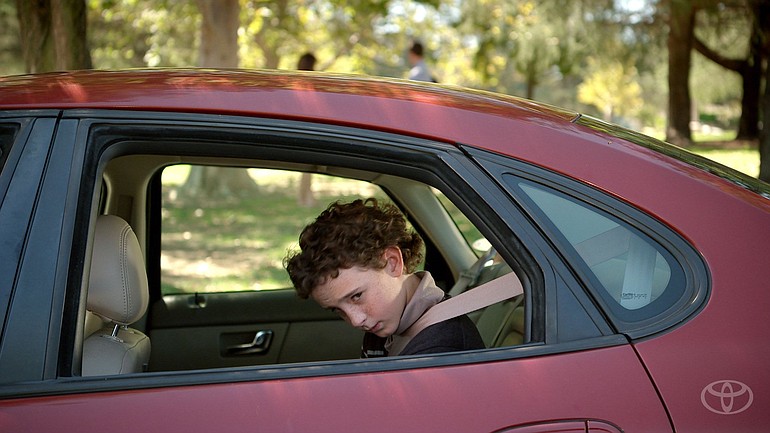Brown said he also likes to blow the horn “real loud, which sounds like a dying moose. What is strange is that all the other kids love it, they think her dad is way cool, and lots of them come over and give me high-fives.”
Toyota uses the concept of kids’ embarrassment over parental behavior to sell Highlander SUVs. One ad shows a kid in a nondescript sedan mouthing “Help me!” as his parents croon, “Just call me angel of the morning!” to a song on the radio. In an adjacent lane, a boy in a Highlander, watching a video on a backseat entertainment system, comments, “Just because you’re a parent, doesn’t mean you have to be lame.”
Looking like a dork is a parental no-no, but so is looking too good. Eva-Marie Fredric said she went to a coffee bar with her high school-age son in Los Angeles and got a very friendly greeting from a young man there. A few minutes later, a group of her son’s teen friends approached, leading her son to shout, “This is my mom, guys!” Later, she said, her son told her, “I’m really glad you take care of yourself, but I don’t want to hear a word from any of the guys.”
What should parents do?
Adolescence is a stage when kids launch from parents in a big way, Sabine said, “at a time when peers are everything. They spend so much time fretting about that, the pressure leads them to emphasize and magnify anything that might reflect upon them. They are working so hard to be cool that they project the criticism onto mom and dad.”




